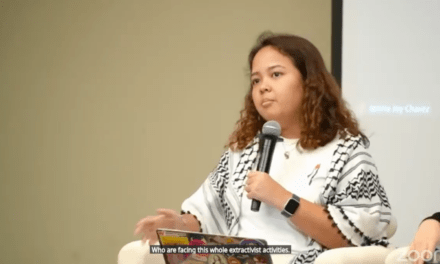The heat is on in Geneva. With just four weeks to go before the 5th ministerial meeting of the World Trade Organisation in Cancun, Mexico, director general Dr Supichai Panitchpakdi is going to have to pull out all stops to avoid a Seattle-like meltdown.
It is just over 20 months since the Doha "development round" of trade negotiations was launched, and one can safely say that absolutely no progress has been made towards putting the "development" into the round.
One potentially positive outcome of the Doha ministerial was the "TRIPS and Public Health" paragraph of the declaration, a political statement intended to pave the way for clarification of the trade in intellectual property rights agreement (TRIPS) to ensure that poor and developing countries had access to affordable drugs. Revisions to the agreement should have been agreed in December 2002, yet this deadline and all that followed have been missed because of US pressures. At first, the US attempted to restrict the scope of the agreement to a short-list of diseases. However, that approach failed and the US is now proposing that it should be restricted to a short-list of "least developed countries". Thailand, to its credit, along with nearly every other developing country, has insisted that the US proposal is a non-starter, and they are holding firm that there should be no limitations on any governments’ scope of action when it comes to public health. However, the pressure is intense and the US pharmaceutical lobby has deep pockets.
Agriculture is another key area where developing countries are hoping to make gains in terms of increasing access to rich markets and pressing the EU and the US to reduce their massive agricultural subsidies which distort world prices and undercut many Third World producers. But again, there are no signs that either the US or the EU is willing to budge. For example, during the G7 summit in June, French President Chirac proposed that all G7 members should stop subsidising agricultural exports to Africa until the conclusion of the Doha round of trade talks, but even that meagre proposal was shot down by UK prime minister Blair, even before the US had time to black-ball it.
On the other side, the Cairns group of agricultural exporting countries, which includes Thailand, is pressing for zero tariffs in agriculture across the board. This would be a disaster for many poor agricultural countries whose farmers would be swamped and destroyed by the more "efficient" producers. The US also supports the zero tariff position eventhough subsidies and protection to its farmers is at an all-time high.
Almost halfway through the "round’ – Dr Supachai has set his sights on the January 2005 deadline to conclude the Doha negotiations – developing countries have gained nothing in health and nothing in agriculture. In all the other areas where they have interests, such as the implementation of agreements and special and differential treatment, the story is the same.
EU AND US DOMINATE
The EU and the US are not giving anything away, yet they continue to put pressure on developing countries to make concessions in other areas, such as investment and services where the rich countries stand to gain.
What’s more, the modus operandi of negotiations makes it very difficult for developing countries to hold their ground. First, the process itself is opaque: informal meetings, invitation only "mini-ministerials" and closed consultations are the norm. Second, draft texts are prepared by the chairs of the negotiating committees according to his or her personal view of the "consensus" rather than reflecting the different positions of each country. Third, the WTO adopts a "single undertaking" approach, meaning that all members sign on to all agreements at the same time. In theory this means that trade rounds can last a very long time, as did the Uruguay round. In practice, it means that developing countries have to make huge concessions in untested areas, such as investment or services, in the hope of gaining something in agriculture or health.
The bottom line, though, is that WTO negotiations are not between the 146-odd member states, but between the EU and the US. On most issues, the main obstacle to any progress is disagreement between the two "majors". Once they reach an accommodation, everyone else either falls or is pushed into line. This is made easy by the fact that developing countries seldom have consensus – the common front on TRIPS and health being a rare exception.
Developing countries continue to engage in negotiations in good faith, in spite of the common – and well-documented — view that they have been seriously disadvantaged by their commitments in the Uruguay Round and repeated calls for a review of its implementation. The response of the EU and US is to press for an expansion of negotiations into the "Singapore Issues" (first raised at the 1996 WTO ministerial in Singapore) of investment, government procurement, trade facilitation and competition policy, with a vague promise that "implementation" will follow.
The WTO reconvened this week after a shorter than usual summer break. On 22 August a second draft of the Cancun Ministerial Declaration will be released by the WTO’s General Council
Chairman, Uruguayan Ambassador Perez del Castillo and on 25-26 August a formal meeting of the General Council will be held to discuss the draft.
Dr Supachai has pinned his reputation on a swift conclusion of the Doha Round. The progress so far has been painstakingly slow and developing countries are under intense pressure to make concessions which they know are against their interests. Dr Supachai may have good intentions of making this a "development" round but on the evidence so far, the only way that his self-imposed deadline can be met is by "fast-tracking" democratic processes, sidelining the dissident voices and accommodating the EU and the US.
* Focus on the Global South, Bangkok Thailand. [email protected]







